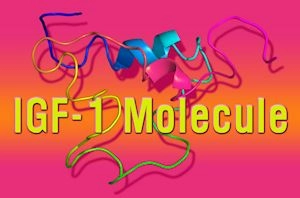Video Link: https://vimeo.com/291607055
Video Download: Gh Rh Antagonist May Be Effective Breast Cancer Treatment
Video Stream: Gh Rh Antagonist May Be Effective Breast Cancer Treatment
In September of 2014, a Florida pharmaceutical company known as Biscayne Pharmaceuticals released clinical research data that provides evidence that GH-RH Antagonists may be able to help patients with breast cancer, and perhaps other forms of cancer.
What is GH-RH?
GH-RH stands for Growth Hormone-Releasing Hormone. This hormone is produced by  the human hypothalamus and stimulates the pituitary gland to produce Human Growth Hormone.
the human hypothalamus and stimulates the pituitary gland to produce Human Growth Hormone.
It has long been shown useful in the treatment of both childhood and adult HGH Deficiency, as well as its derivative forms.
To stimulate HGH Production in patients, physicians prescribe Sermorelin and Tesamorelin, functional analogs of natural GH-RH. These medications share the active component of the GH-RH molecule and have the exact same physiological effect on the human body.
In addition to its use for patients with Growth Hormone Deficiency, research has shown other benefits related to GH-RH, and it represents an active area of study in medical science.
For example, it has been proven that GH-RH can improve the rate at which tissue heals in the case of injury.
Cancer Cells Feed on GH-RH
The potential issue with Growth Hormone-Releasing Hormone is that it also appears to stimulate the growth of cancer cells, because of its body-wide effects upon cellular metabolism.
Dr. Andrew Schally was the first to scientifically prove that even cancer cells have activation sites that respond to GH-RH.
In addition to responding to the production of GH-RH, cancer cells also can produce their own Growth Hormone-Releasing Hormone, which appears to be one of the mechanisms by which cancers fuel themselves for growth, in addition to stimulating the creation of new blood cells.
Biscayne Pharmaceuticals purchased the licensing rights of the GH-RH Research produced by Dr. Schally to use that data to create a new drug that will potentially have the ability to suppress the production of GH-RH, thereby slowing down  the spread of cancer.
the spread of cancer.
A representative of Biscayne Pharmaceuticals, Dr. Norman Block, released the results of their GH-RH breast cancer study at the ASCO Breast Cancer Symposium.
Dr. Block is a Professor of Urologic Research at the University of Miami, as well as the Clinical Director of the Endocrine, Polypeptide, and Cancer Institute of the Miami Veterans Affairs Medical Center.
Individually, Biscayne Pharmaceuticals is working on a Growth Hormone-Releasing Hormone Antagonist, which will have the ability to lock into GH-RH Activation sites, thereby blocking the ability of GH-RH to react with receptor sites present in cancer cells.
Research Shows that Most Breast Cancer Cells Have GH-RH Receptors
Thus far, GH-RH Antagonists have not been thoroughly used for treatment in active patients, but they have been used to treat breast cancer in vitro to much success.
They found that almost all common forms of breast cancer respond to GH-RH activation, including original, primary tumors and secondary tumors that have spread to other areas of breast tissue.
Although Dr. Schally's clinical discoveries have been co-opted by Biscayne Pharmaceuticals, he still actively participates in the discovery process for these new GH- RH Antagonists, along with lead researcher Dr. Block.
RH Antagonists, along with lead researcher Dr. Block.
Based on the data collected thus far, Dr. Schally is quite convinced that GH-RH plays a role in many forms of breast cancer, and probably an extensive collection of other cancers as well.
As a result of this research, he is under the impression that GH-RH Antagonists will potentially be a part of future cancer treatments.
Biscayne Pharmaceuticals is currently working on many potential GH-RH Antagonists, and, with the current evidence regarding the potential effectiveness of treatment, the ablest of these Antagonists will likely be used in active clinical trials soon.
GH-RH Antagonists Soon to Enter Human Trials
The GH-RH Antagonists, which have been created so far, have been thoroughly studied using animal subjects.
In animal research, these GH-RH Antagonists have proven to be highly effective, though it is never clear exactly how human patients will respond to treatment before human trials begin.
Fortunately, the mechanisms of GH-RH are relatively well understood by doctors, and most of the effects of GH-RH and its species-specific relatives are the same across mammalian subjects.
Researchers hope that these GH-RH Antagonists are not only useful in the treatment of Breast Cancer but other forms of cancer as well.
In this particular study, researchers examined the effects of GH-RH upon a wide variety of breast cancer tissue samples.
What they found was that, when treated with GH-RH, 86% of the samples grew in size or metastasized, while also showing that they responded actively to the GH-RH introduced to the example.
actively to the GH-RH introduced to the example.
They also found that GH-RH activated cancer in 78% of liver cancer samples, 71% of brain cancers, and 55% of bone foci samples.
Although the percentage of activation on bone samples was lower, researchers hypothesize that this is the result of how the samples were obtained and that the true responsiveness should be near that of the other samples.
The researchers in this study have also used GH-RH Antagonists in vitro on a variety of breast cancer lines, and there is minimal evidence of side effects resulting from their use on these cancer tissue lines.
Based on this data and the overwhelming evidence that GH-RH Receptors are located on most breast cancer cells, they will pursue Clinical Research using GH-RH Antagonists on live patients.
Biscayne Pharmaceuticals Also Researching Potential Benefits of GH-RH Treatment
Although GH-RH and Human Growth Hormone may encourage the growth and spread of cancer, in patients without cancer, GH-RH and Human Growth Hormone produce many benefits.
These treatments have been used for decades to treat patients with Human Growth Hormone Deficiency of both the pediatric and adult varieties.
Biscayne Pharmaceuticals is studying the potential ability for GH-RH Analogs to improve heart health in heart disease patients by actively repairing heart damage.
Although this research has not reached human trials, the evidence is promising.
Although Biscayne Pharmaceuticals is not clinically testing the hypothesis, there is also evidence that GH-RH treatments like Sermorelin Acetate and Tesamorelin may have the ability to aid in the treatment of chronic degenerative neurological conditions such as Alzheimer's disease.
Reference
Contact Us For A Fast And Professional Response

- Sermorelin — HGH Injections Versus Sermorelin and Testosterone Therapy Programs [Last Updated On: February 20th, 2025] [Originally Added On: September 20th, 2020]
- GH-RH Therapy Benefits Cognitive Health of Elderly Patients [Last Updated On: August 19th, 2024] [Originally Added On: September 23rd, 2020]
- Sermorelin with GHRP-6 - Hormone Doctor San Diego [Last Updated On: February 18th, 2025] [Originally Added On: October 28th, 2020]
- Injectable Sermorelin with GHRP-6 for Men [Last Updated On: September 8th, 2024] [Originally Added On: November 2nd, 2020]
- How Does Sermorelin Work? [Last Updated On: February 7th, 2025] [Originally Added On: November 22nd, 2020]
- Sermorelin Acetate Therapy Increases HGH [Last Updated On: February 20th, 2025] [Originally Added On: November 25th, 2020]
- Sermorelin for Women [Last Updated On: February 15th, 2025] [Originally Added On: November 27th, 2020]
- Facilitating the Health of the Lymphatic System: How to Keep the Lymph System Healthy [Last Updated On: March 29th, 2025] [Originally Added On: January 5th, 2021]
- What are the Benefits of Sermorelin Acetate Injections versus HGH Injections? [Last Updated On: September 3rd, 2024] [Originally Added On: January 14th, 2021]
- Sermorelin Therapy 21st Century Injectable Human Growth Hormone Restoration [Last Updated On: October 7th, 2024] [Originally Added On: February 16th, 2021]
- Buy Sermorelin -- What to do When Sermorelin Arrives in the Postal Mail [Last Updated On: February 16th, 2025] [Originally Added On: May 9th, 2021]
- Age Management with Sermorelin Injection Treatment [Last Updated On: March 7th, 2025] [Originally Added On: May 23rd, 2021]
- How Do Hormonal Imbalances Affect Men? [Last Updated On: January 7th, 2025] [Originally Added On: July 20th, 2021]
- HGH Injections and the Most Frequently Asked Questions [Last Updated On: October 4th, 2024] [Originally Added On: September 4th, 2021]
- Sogroya HGH Therapy For Adult Growth Hormone Deficiency [Last Updated On: October 31st, 2024] [Originally Added On: May 30th, 2022]
- The Biological Function Of HGH Human Growth Hormone [Last Updated On: November 25th, 2024] [Originally Added On: July 10th, 2022]
- Introduction to Sermorelin Acetate Therapy [Last Updated On: February 6th, 2025] [Originally Added On: February 6th, 2025]
- Introduction to Sermorelin Therapy [Last Updated On: February 10th, 2025] [Originally Added On: February 10th, 2025]
- About Sermorelin Acetate (SA) [Last Updated On: February 22nd, 2025] [Originally Added On: February 22nd, 2025]

















